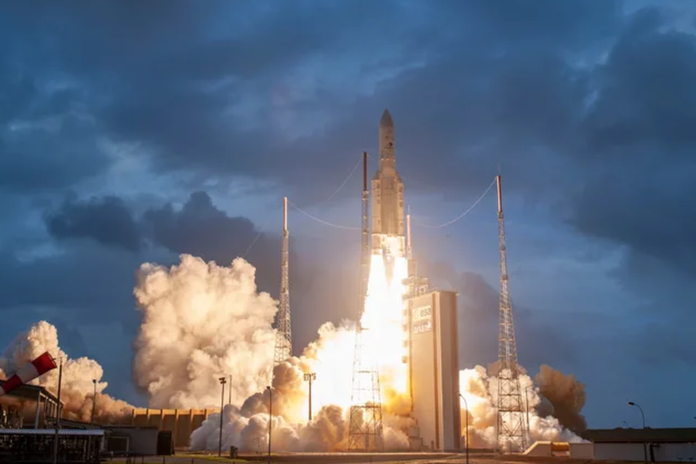Satellite links to existing phones – roaming conditions apply
SpaceX satellites will connect directly to the phones of Deutsche Telekom subsidiary T-Mobile next year, the two companies have announced. They become the latest competitors in a space race led by AST SpaceMobile with a field including Orange, Vodafone, Rakuten Mobile and three divisions of Telefónica. T-Mobile’s CEO revealed that, as the industry evolves, these new consumer satellite phones are likely to be subject to roaming charges.
Like its competitors, the new T-Mobile service will work on existing smart phones and use SpaceX’s network of thousands of low earth orbital (LEO) Starlink satellites. They will start by relaying text messaging services from late 2023, with voice calls and data services expected to follow later.
“The important thing about this is that it means there’s no dead zones anywhere in the world for your cell phone,” said owner Elon Musk, speaking at SpaceX’s Starbase in Texas. Musk claimed the service will save the lives of hikers who get lost in the desert and are beyond the range of terrestrial network coverage. “We will no longer read about these [avoidable] tragedies where people get lost and if only they could have called for help they would be OK.”
There will be no more need for specialised hardware, such as Starlink terminals, for satellite coverage, Musk said, but that comes at a price. “This won’t have the kind of bandwidth that a Starlink terminal would have, but it will enable texting, it will enable images and you can even potentially have a little bit of video,” said Musk, “if there aren’t too many people in the cell zone.”
T-Mobile CEO Mike Sievert said he expects the new service to be bundled free in the US with most cell phone plans, although there could be a fee for users on low-cost packages. “It’s a lot like putting a cellular tower in the sky. Just a lot harder,” said Sievart.
Amazon founder Jeff Bezos recently announced he intended to launch 3,200 satellites. China plans to launch a constellation of 13,000 Guowang (satellites) and the European Union wants to send 250 satellites into space by 2024. Meanwhile Thales, Ericsson and Qualcomm are also collaborating on satellite-driven 5G network to improve terrestrial connectivity.
The first ever satellite launches from British soil will take place this summer, from opposite ends of the UK, with Spaceport Cornwall in the South West of England and, at the other end of the British isles, Shetlands-based SaxaVord and Astra Space preparing for satellite launches. Another Scottish company, Orbex has unveiled a prototype of the first-ever vertical rocket system from UK soil.
While next year’s beta test launch will be restricted to the United States, Sievert said the DT-subsidiary will expand to overseas markets with reciprocal roaming deals.


